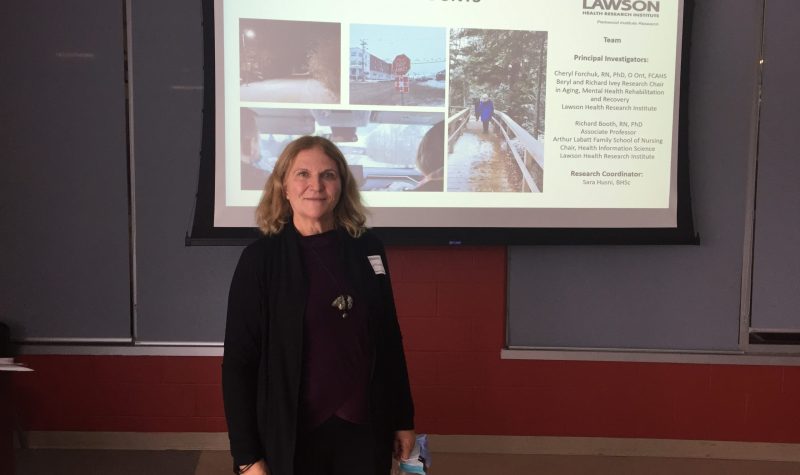A National Homelessness Forum hosted by Lawson Health Research institute out of London, Ontario came to the INVISTA Centre in Kingston yesterday.
As part of the Homelessness Counts project, The Lawson Health research team has travelled to 28 communities across Canada to meet with organizations, community leaders and those with lived experience of homelessness in order to get a clear picture of the number of homelessness people across the country, the demographics they fall under, barriers to services and in turn to work towards targeted solutions.
Assistant Scientific Director with Lawson Health Institute Dr. Cheryl Forchuk lead the discussions and says Canada is the only industrialized nation that doesn't have housing at the federal level.
She says we do have a national housing strategy now.
"It was very well done, focused on housing first which is an evidence based approach...the pandemic got in the way, during the pandemic the whole sector surrounding homelessness suffered greatly...just over 16 per cent became homeless during the pandemic, the time is now to start enacting that plan.. implementing the strategy will give the other layers of government more direction and more tools."
Earlier this year, Kingston city council enacted the encampment protocol, while supportive housing organizations have stated there is not enough room for the unhoused.
"By and large the people I spoke to in encampments are there because they feel it's their best choice available, they felt shelters were not safe, many of the shelters were in fact full...the closer proximity, congregate living, women, people from disadvantaged groups, it was very difficult for the shelter to meet all those needs, it's a complex issue, people need a home."
She says we need to focus on Housing First strategies which interacts with the housing market to find more places for people to stay.
I would focus on evidence based approaches and where there is no evidence, and you're trying something new evaluate it so we know whether it's something other people should replicate or not," says Forchuk.
Forchuk says she saw communities across the country taking action.
She says Kingston has been a very active and involved community.
"You can care about your neighbour, but you have to advocate provincially or federally," says Forchuk.
Listen to the full CFRC interview with Dr. Cheryl Forchuk below:


